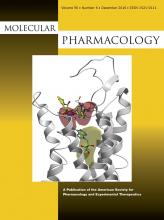Abstract
Past decades of cancer research have mainly focused on the role of various extracellular and intracellular biochemical signals on cancer progression and metastasis. Recent studies suggest an important role of mechanical forces in regulating cellular behaviors. This review first provides an overview of the mechanobiology research field. Then we specially focus on mechanotransduction pathways in cancer progression and describe in detail the key signaling components of such mechanotransduction pathways and extracellular matrix components that are altered in cancer. Although our understanding of mechanoregulation in cancer is still in its infancy, some agents against key mechanoregulators have been developed and will be discussed to explore the potential of pharmacologically targeting mechanotransduction in cancer.
Footnotes
- Received September 2, 2016.
- Accepted October 13, 2016.
This work was supported by National Institutes of Health National Cancer Institute [Grants 1RO1CA168689, 1R01CA174869, and 1R01CA206880]; Department of Defense Breast Cancer Program [Grant W81XWH-13-1-0132 to J.Y.]; and National Institutes of Health [Predoctoral Training Grant 5T32GM007752 to H.E.M.].
J.Y. is the 2016 recipient of the John J. Abel Award in Pharmacology given by ASPET. This work was previously presented at the following lecture: Jing Yang (2016) Epithelial-Mesenchymal Plasticity in Carcinoma Metastasis. ASPET Annual Meeting; 2016 Apr 4; San Diego, CA.
- Copyright © 2016 by The American Society for Pharmacology and Experimental Therapeutics
MolPharm articles become freely available 12 months after publication, and remain freely available for 5 years.Non-open access articles that fall outside this five year window are available only to institutional subscribers and current ASPET members, or through the article purchase feature at the bottom of the page.
|






